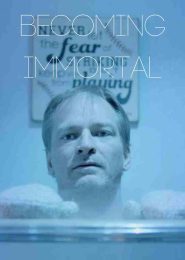Fix It: Healthcare at the Tipping Point (2016)
The Fix It: Healthcare at the Tipping Point documentary, released in 2016, provides a sobering examination of America’s healthcare crisis and proposes pragmatic solutions. Let’s delve into its thought-provoking content:
- The Broken System:
- The film takes a hard look at our dysfunctional healthcare system and its far-reaching impact.
- It highlights how this broken system negatively affects the nation’s health, discourages physicians, and harms businesses and the national economy.
- Economic Conundrum:
- Hospitals, often charging outrageous fees, accumulate billions of dollars in cash reserves while 100 million hard-working Americans grapple with medical debt.
- The average cost of a family health insurance policy exceeds $22,000, with additional deductible costs of up to $17,500.
- Employers and workers struggle to keep up with these runaway expenses.
- Path Forward:
- Fix It proposes a common-sense solution to rein in the out-of-control costs.
- The goal is to ensure full access to quality healthcare for every American.
- By addressing the underlying issues, we can create a system that serves both patients and providers.
- Expert Insights:
- The documentary features interviews with experts, advocates, and everyday Americans who have felt the impact of this broken system.
- Physicians share their frustrations, emphasizing the need for change.
- Real-life stories underscore the urgency of reform.
- Community Engagement:
- Viewers are encouraged to watch the film and organize community screenings.
- By spreading awareness and fostering dialogue, we can collectively advocate for meaningful change.
- A Call to Action:
- Fix It isn’t just a documentary; it’s a call to action.
- It challenges us to rethink our priorities, advocate for transparency, and demand a healthcare system that prioritizes affordability, accessibility, and quality.
In summary, Fix It: Healthcare at the Tipping Point urges us to confront the flaws in our healthcare system and work toward a future where healthcare is a right, not a privilege. Let us engage in conversations, advocate for reform, and strive for a healthier, more equitable society.




